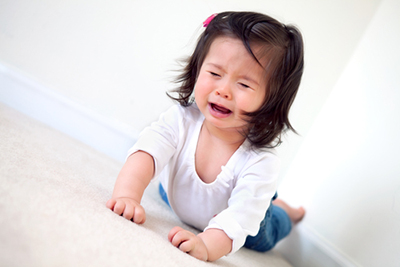
Source: sg.theasianparent.com
“I hate school! I would rather do anything else but go to school!”
“Doctor my 8 year old son won’t stay still. His teachers said he is very talkative and can’t focus during lessons. He disturbs his friends and refuses to do his school work!”
“My 4 year old son doesn’t like making friends at preschool. He will just play on his own and ignore his classmates. If he likes something he will want to know everything about it. I noticed that he can become very focused on one subject at a time. At this stage he is unable to converse as well as other children his age”.
Do the situations above sound familiar? Have any of you been through these situations? How do you deal with these situations? All of the above situations are just examples of what parents or children say when they see a psychiatrist. All of the above are examples of common problems you see in children with psychological issues .
“I hate school! I would rather do anything else but go to school!”
This is usually what children say when they do not want to go to school and is termed as school refusal or school anxiety. It can occur at any stage of the school going children whether it be during preschool, primary school or even secondary school. In these cases, it is necessary to identify if the affected children have any underlying depressive or anxiety disorders which may need to be addressed.
“Doctor my 8 year old son won’t stay still. His teachers said he is very talkative and can’t focus during lessons. He disturbs his friends and does not want to do his school work!”
A number of parents will become frustrated at this stage especially when they do not know how to deal with their child. The children who are relating similar complaints may be exhibiting symptoms suggestive of Attention Deficit Hyperactive Disorder (ADHD).
These children often have problems in their attention, behaviour; or a combination of both. Among the other complaints which are often mentioned in clinic by parents is that their child cannot organize themselves, are often forgetful in their daily activities, always losing their things such as toys, books etc., cannot wait for their turn and dislike tasks that involve mental efforts.
“My 4 year old son doesn’t like making friends at preschool. He will just play on his own and ignore his classmates. If he likes something he will want to know everything about it. I noticed that he can become very focused on one subject at a time. At this stage he is unable to converse as well as other children his age”.
In both children and adults, the signs and symptoms of autism spectrum disorders include problem with social skills, speech and language. Often, these children and occasionally adults present with restricted activities and interests. The severity of the disorder, however, is a combination of all the above components and how this condition affects the child’s progress and life.
Keep in mind, however, that just because your child has a few autism-like symptoms, it does necessarily not mean he or she has an autism spectrum disorder. The autism spectrum disorders are diagnosed based on the presence of multiple symptoms that disrupt the child’s ability to communicate, form relationships, explore, play and learn.
Where can I seek help ?
You can seek help from a psychiatrist to assess your child. Most government hospitals have a psychiatry department where you can ask. Preferably, children with psychological disorders should be seen by a Child & Adolescent psychiatrist. If this is not possible due to human resource limitation, a general psychiatrist can also deal with these children to a certain level before he/she may also refer. Below is a list of all Child & Adolescent Psychiatry units available in several regions:
Central region
University Malaya Medical Centre, Hospital Selayang, Hospital Kuala Lumpur, Hospital Universiti Kebangsaan Malaysia and Gleneagles Medical Centre.
Northern region
The service is available at Hospital Taiping, Hospital Pulau Pinang and Hospital Sultan Abdul Halim, Sungai Petani.
Southern region
At the moment the service is only available at the Hospital Sultanah Aminah.
However, it is a team effort to manage these children when initially seen. More often times than not, other disciplines will need to be involved, such as occupational therapists, physiotherapists, speech therapists, counsellors, clinical psychologists and teachers in the process of treatment.
“A person’s a person, no matter how small.”
– Dr. Seuss, author
Dr. Nazariah Aiza Harun is a Psychiatrist and currently a Trainee in Child & Adolescent Psychiatry based in a government hospital. She is also Vice President of The Early Career Psychiatrists Chapter of the Malaysia Psychiatric Association (ECP).
[This article belongs to The Malaysian Medical Gazette. Any republication (online or offline) without written permission from The Malaysian Medical Gazette is prohibited.]
